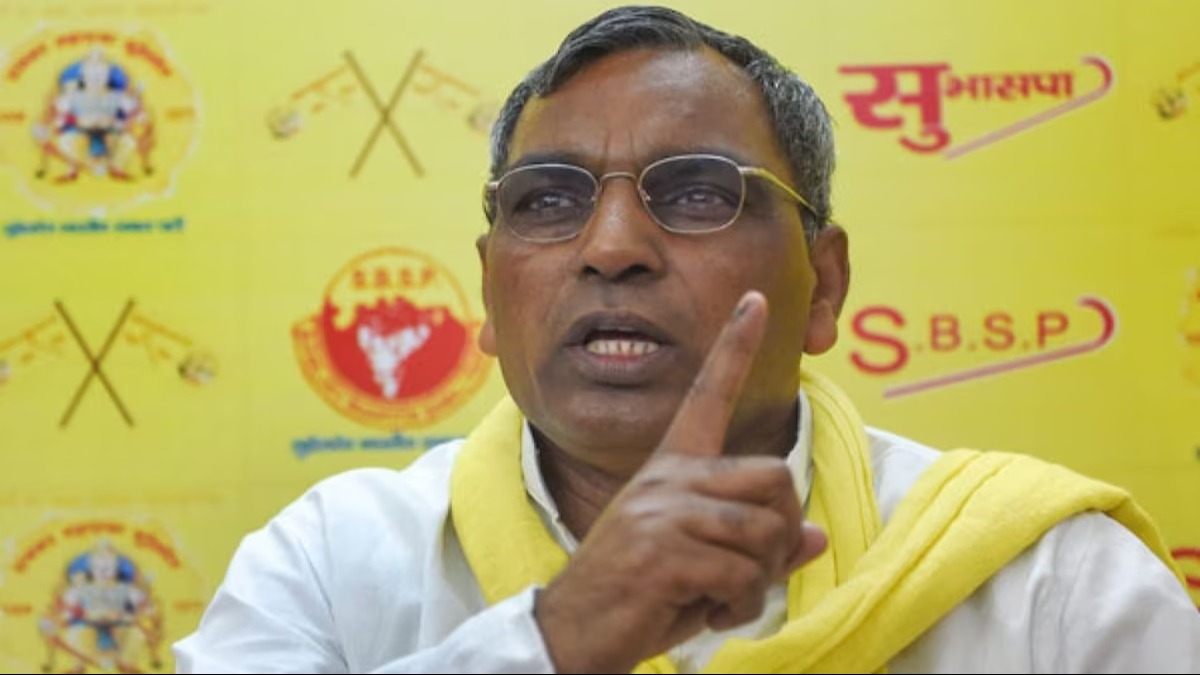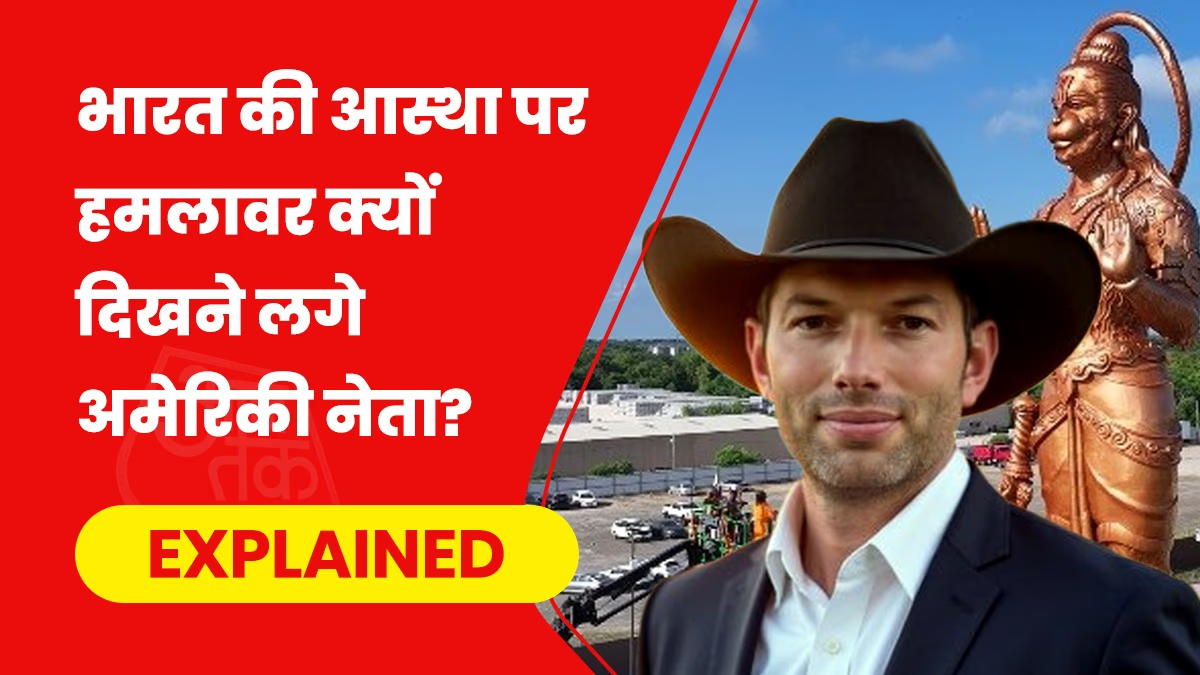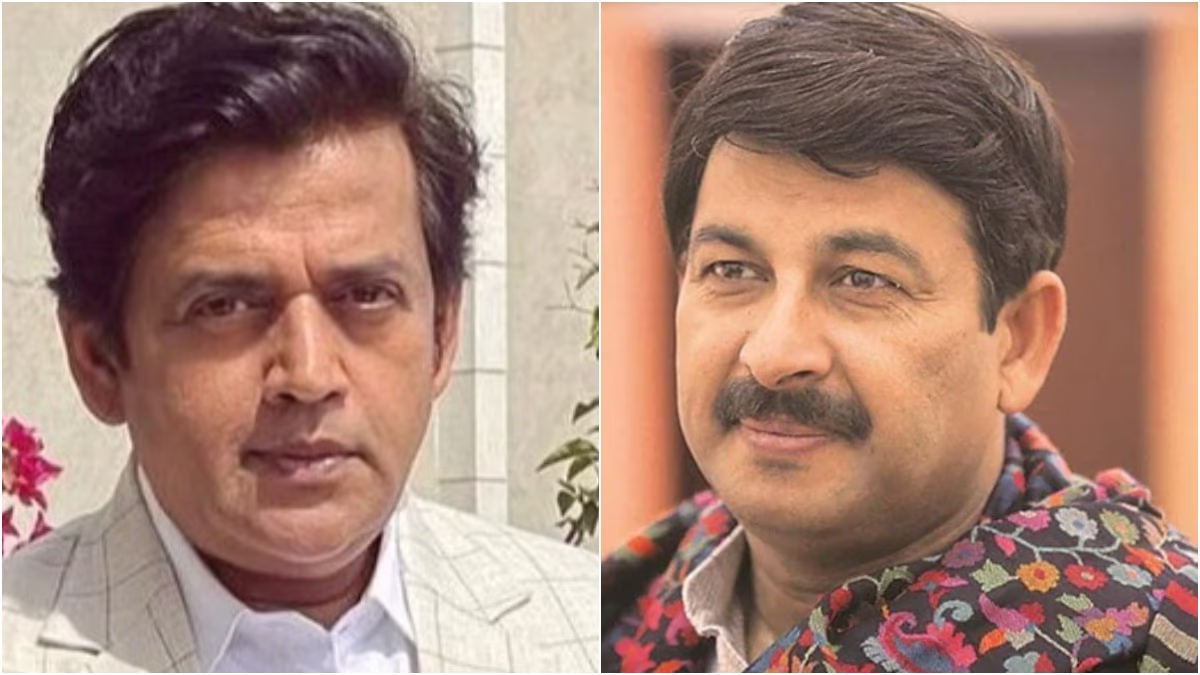Om Prakash Rajbhar, the president of the Suheldev Bharatiya Samaj Party and newly reinstated minister in Uttar Pradesh, embodies a paradox in Indian politics, reflecting both the maturity and faults in our democracy. His political journey is worthy of a thesis. As a minister, Rajbhar protested against his own government for road construction. Not long ago, he boldly claimed that the election commission cannot announce the parliamentary elections until he is made a minister again. His ambition continues to soar, challenging state authorities left and right, but make no mistake about his stability or intentions. Rajbhar is a sagacious leader, adept at making his voice heard among the public and the media. Despite internal dissent, he strategically announced his son, Arvind Rajbhar, as the candidate for the Ghosi parliamentary seat, with support from a party that proclaims itself an adversary of dynastic politics. This might just reveal the extent of BJP's capitulation to dynastic dominance.
Rajbhar's Bold Declarations
Om Prakash Rajbhar's controversial statements have always sparked public discourse, strengthening his foothold among backward classes. He recently quipped that 'wisdom comes to the Ahir community at noon.' He has also alleged that Yogi Adityanath wants him assassinated and sent goons during the nomination process. Emphasizing his rebel image, Rajbhar claimed, 'There was one Gabbar Singh in Sholay, consider me the same,' signifying his zealousness to serve the impoverished, who have long been oppressed under the previous socialist government.
Rajbhar is aware of BJP's dependency on dynastic allies
Rajbhar understands BJP's compulsions in relying on familial parties. This understanding led to the nomination of his son, Arvind Rajbhar, for the parliamentary seat from Ghosi. In Uttar Pradesh, other key allies like the Nishad Party and Apna Dal (S) also prominently feature familial dominance, a necessity BJP seems willing to accommodate behind closed doors.
The NDA's 'Dynastic' Allies:
1. RLD: Chaudhary Charan Singh's family
2. Nishad Party: Sanjay Nishad's family
3. Apna Dal (S): Sone Lal Patel's family
4. Suheldev Bharatiya Samaj Party: Rajbhar family
5. Rashtriya Lok Janshakti Party (Pashupati Paras): Paswan family
6. Lok Janshakti Party (Ram Vilas): Paswan family
7. Hindustani Awam Morcha: Manjhi family
8. Janata Dal (Secular): Deve Gowda's family
9. National People's Party: Sangma family
10. NCP (Ajit Pawar): Pawar family
The Influence of Rajbhar and Dynastic Parties
Rajbhar underscores, 'What do we have? BJP calls itself the world's largest party, yet it must ally with over 46 parties. Remove the 45 allies, and see where BJP stands. In crucial districts like Ambedkar Nagar, Ghazipur, Ballia, Mau, and Basti, BJP barely secured three seats, signifying the pivotal role these smaller parties, representing distinct castes, play in influencing election outcomes.' The stories of other dynastic allies like the Nishads in Gorakhpur highlight the significant sway these familial parties hold.
Ultimately, these vote banks associated with smaller castes become critical in elections. Interestingly, leaders who have established parties to represent these castes never allow their franchises to outgrow familial control. The BJP cleverly realizes that their parliamentary ship depends on such partners, making it strategic to occasionally overlook the dynastic dynamics of allies like Rajbhar.




